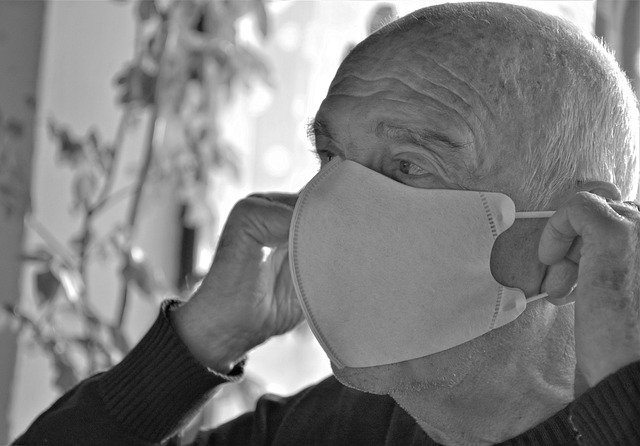This article originally appeared on the NHCOA blog. Para leer este artículo en español, haga clic aquí.

COVID-19 is an infectious disease caused by a newly discovered coronavirus. That is believed to spread primarily through droplets of saliva or discharge from the nose when an infected person coughs or sneezes.
It is also possible for a person to become infected by COVID-19 by touching surfaces or objects that have the virus on them and then touch their own mouth, nose or eyes.
Most people infected with the COVID-19 virus will experience mild to moderate respiratory illness and recover without requiring special treatment. However, older adults, those who are immunocompromised (weakened immune systems) and those with underlying medical conditions/chronic diseases like cardiovascular disease, diabetes, chronic respiratory disease, and cancer are more likely to develop serious illness.
Individuals with HIV have weakened immune systems and are at a higher risk of more severe illness if infected with COVID-19. According to the Centers for Disease Control and Prevention (CDC), in 2016, nearly half of the people in the United States living with diagnosed HIV were aged 50 and older.
Older adults with HIV are at an even higher risk of severe illness if infected with COVID-19, especially if their HIV is not well controlled.
At the present time, the CDC has issued no specific information about the risk of COVID-19 for people with HIV. The risk from immune suppression (a person that don’t have the ability to respond to an infection due to a weakened immune system) is not known. However, when comparing risks for individuals with HIV to others with viral respiratory infections, the risk for people with HIV getting very sick is greatest among
- Individuals with HIV that have a low CD4 cell count.
- It’s important to know that a CD4 count is a test that measures the number of CD4 cells in your blood. CD4 cells, also known as T cells, are white blood cells that fight infection and play an important role in our immune system.
- Individuals with HIV who are not currently receiving treatment for their HIV (such as antiretroviral therapy or ART).
It’s important to highlight that people with HIV can also be at increased risk of getting very sick with COVID-19 based on their age and other medical conditions.
Luis’s Story
Luis is 68 years old and was diagnosed with HIV many years ago. As an older adult, who is living with HIV and diabetes, he is aware of the risks of being infected with COVID-19.
During the COVID-19 outbreak, Luis has followed the recommendations to prevent contracting COVID-19
- He avoids close contact with people who are sick.
- He stays at least 6 feet away from other people when in public (physical distancing).
- He avoids touching his eyes, nose, and mouth.
- He stays home when he is sick, except when he needs to get medical care.
- He washes his hands often with soap for at least 20 seconds.
- He cleans and disinfects frequently touched objects and surfaces.
- He ensures that he has at least a 30-day supply of his HIV medicine and any other medications or medical supplies he needs for managing HIV.
- He talks to his health care providers and made sure all of his vaccinations are up-to-date, including vaccinations against seasonal influenza (the flu shot) and bacterial pneumonia.
- He established a plan for clinical care since he may have to stay at home for a couple of weeks. He established a telemedicine link through his HIV care provider’s online portal so he could communicate with his providers without having to go into the clinic. For providers that did not have telemedicine capabilities, he is able to communicate by phone or text.
- Although Luis practices physical distancing (see #2), he is sure to maintain his social networks via using social media, phone and video chats.
- Luis is focusing on reducing stress and anxiety by going for walks, meditating and listening to his favorite music
- If Luis becomes sick, he has a plan to stay in touch by phone or email with people who can help him.
Remember, by staying at home we are preventing the spread of the virus and keeping ourselves and loved ones safe and healthy.
The opinions expressed in this article are those of the author and do not necessarily reflect those of the Diverse Elders Coalition.
